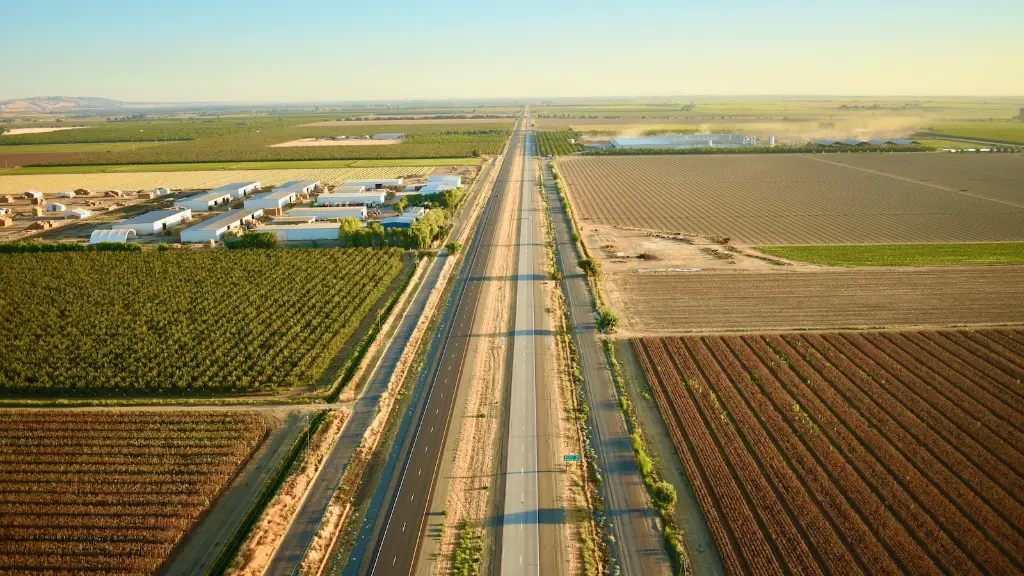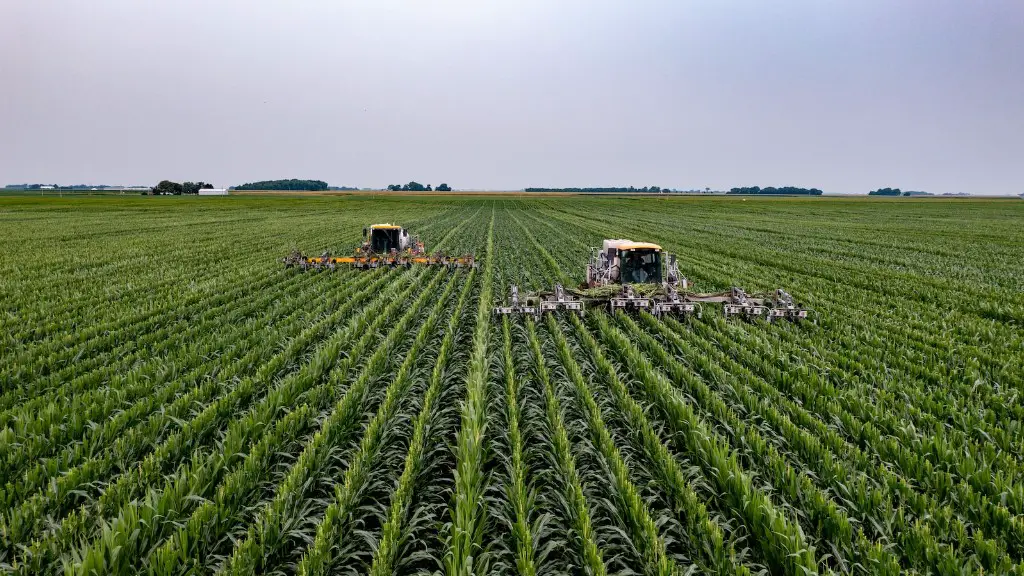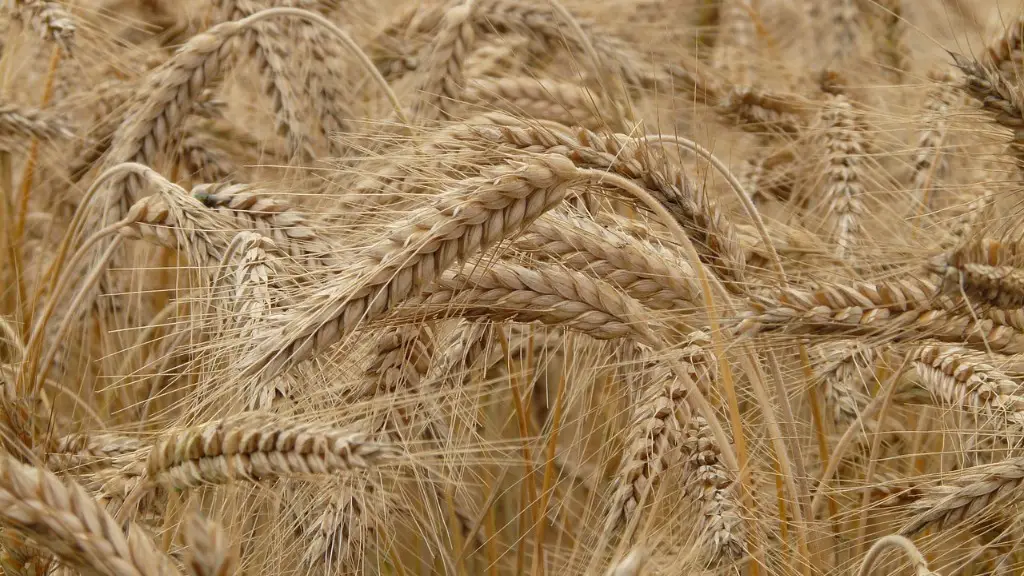The development of agriculture is often considered a pivotal moment in human history; it marked a turning point in our species’ evolutionary journey and has been credited with the emergence of civilizations as we know them today. But the question remains: could there have been civilizations without the development of agriculture?
Evidence suggests that many pre-agricultural societies were complex, with a range of social, economic, and political structures. Human beings had sophisticated tools and weapons, as well as an understanding of astronomy, mathematics and engineering. These societies crafted religions, built monuments, and traded goods and services with one another.
Agriculture is often credited with ushering in a new period of human history in which larger societies flourished, due to an increased abundance of food and a shift in the nature of resource production. Before the development of agriculture, humans relied on hunting and gathering to sustain themselves, which limited their ability to settle in one place and form complex and large-scale societies.
Though it may seem unlikely, evidence suggests it is possible that complex societies could have been created without the major shift from hunting and gathering. Other civilizations existed in which governments, social hierarchies, or even written languages were present, but not necessarily linked to the production of food.
An alternate theory states that the shift away from a nomadic, hunter-gatherer lifestyle as a result of increased human population, rather than intentional agricultural practices, was what caused societies to become more complex. This theory holds that as our numbers grew, so too did the competition for resources and the need for organization. Thus, in order to survive, the structure of governance, trading and religion naturally developed.
It has also been argued that agriculture enabled nations to expand their territories, become more powerful, and even engage in warfare. Pre-agricultural people were not likely able to sustain armies due to the scarcity of food, whereas a successful agricultural society could send disciplined and well-equipped soldiers into battle.
Agriculture may have had a significant role in the development of complex societies, but we cannot entirely forget the hardiness and cleverness of those who lived before it. We can only speculate what sorts of civilizations they would have built, had the development of agriculture not been the catalyst.
Impact of Agriculture on Livestock Production
The development of agriculture had a major impact on livestock production, which has in turn had a major impact on overall food production today. Globally, the number of animals being raised for food production is estimated to have doubled in the last century due to improved farming technologies, as well as increased access to feed and water. This increase has had a direct link to increased efficiency and volume of food production, enabling many countries to experience improved nutrition and access to protein.
Agriculture also enabled humans to domesticate animals, helping us to keep them secure and healthy. By doing this, humans were able to create larger and more efficient farms, with greater access to food and water. Keeping animals in secure and comfortable environments not only improved their productivity, but also allowed them to be crossbred in order to create faster growing, more resilient and productive animals.
In addition, the development of agriculture meant that farmers had access to improved storage methods for food and animal feed, greatly reducing spoilage. This enabled them to breed larger livestock, which could then produce more food, better quality animal products and higher profits. Overall, agriculture’s development enabled a far larger variety of livestock production than before, greatly increasing food production and availability globally.
Institutionalization of Agriculture
The development of agriculture not only increased the efficiency of food production and availability, it also led to the institutionalization of agriculture in many countries. This institutionalization allowed for agricultural practices to become organized and formalized, leading to the establishment of government initiatives, regulations and policies. These in turn enabled greater access to resources and more secure and predictable food production.
The institutionalization of agriculture has also been seen as contributing to economic growth and improved economic stability. In many countries, farming has become a business, as opposed to merely an agricultural practice. This has increased agricultural output, leading to increased profits and a rising standard of living for those involved in the agricultural industry.
The institutionalization of agriculture has been key to the development of the agricultural sector in many countries, enabling it to become a major force in global food production and trade. This has resulted in increased food security and greater access to essential foods and proteins in many parts of the world, improving overall nutrition and well-being.
Development of Agricultural Technology
The development of agricultural technology has been instrumental in improving the efficiency of the agricultural sector and, in turn, food production and accessibility. With the aid of technology, agricultural output can be maximized, leading to improved food security and nutrition over time.
Technological advances in agricultural production, such as mechanization and irrigation, have enabled farmers to grow more food in less time, leading to increased productivity, profits and food availability. In addition, improved technologies and methods such as genetic modification and seed production have enabled farmers to produce higher-yield crops with fewer inputs, resulting in reduced costs and more efficient and effective agricultural production.
Agricultural technology has also enabled the development of more efficient agricultural systems, which can result in improved water and nutrient management, greater pest management and more accurate crop planning and monitoring. All of these systems and technologies have helped to revolutionize agriculture and improve the efficiency and sustainability of food production, ultimately leading to greater global access to essential food products and better nutrition.
Environmental Challenges of Agriculture
As agricultural output has increased, so too has the environmental challenges associated with it. The environmental impacts of agriculture can be significant, leading to soil and water degradation, air pollution, and damage to biodiversity. Agriculture is also a major contributor to climate change, with the sector being responsible for nearly one-quarter of all human-generated greenhouse gas emissions.
While the development of agriculture has significantly increased food production and availability, it is important to be mindful of the possible detrimental impacts on the environment that can arise from it. In order to mitigate these impacts, it is essential for farmers to adopt sustainable agricultural practices that are designed to reduce emissions and minimize environmental damage. This includes reducing fertilizer and pesticide usage, maintaining a healthy soil structure, and practicing water conservation techniques.
In addition, advanced technologies such as precision agriculture, robotic agriculture, and artificial intelligence can be used to help farmers be more efficient and effective in their agricultural practices, resulting in improved yields and fewer environmental impacts. Furthermore, increasing investment in research and development in the agricultural sector can help to further identify and deploy novel strategies to mitigate the environmental impacts of agriculture.
Agricultural Impact on Society
The development of agriculture has had a strong influence on many aspects of modern society, and not just in terms of improved food production and availability. In some areas, the development of agriculture has been linked to increased population growth, economic prosperity and social change. In other areas, agriculture has led to increased sustainability and resilience in terms of food security, as well as improved access to education and healthcare.
Developing nations, in particular, have experienced an overall increase in their quality of life, with agricultural improvements leading to greater social mobility and decreased poverty. Moreover, agricultural advances have enabled countries to become major exporters of food and agricultural products, helping to create greater economic stability in those nations.
The development of agriculture has been a major contributor to a more sustainable and equitable society, leading to decreased hunger and malnutrition, improved access to essential nutrients, and increased nutrition and well-being for many people around the world. In addition, it has been a major catalyst for social, economic and environmental progress.





